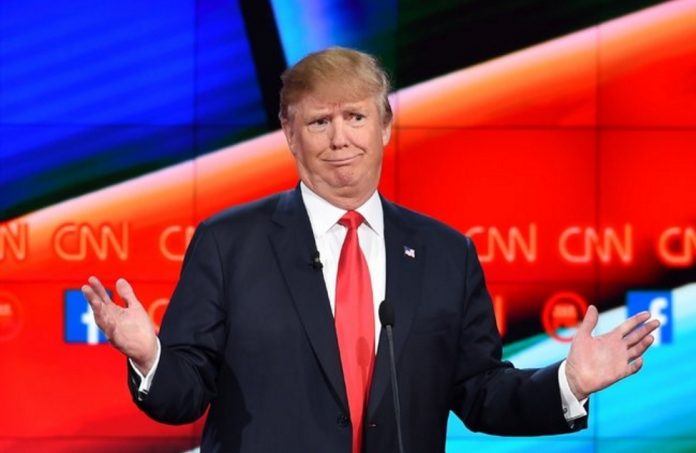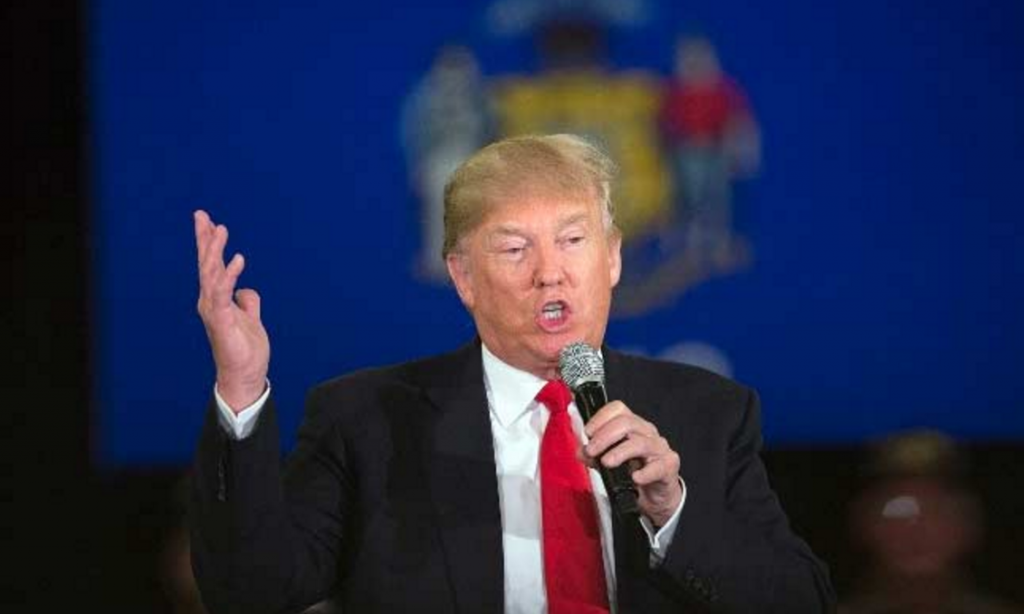
WASHINGTON – President Obama sought Thursday to consolidate support among Asian powers to contain North Korea’s growing nuclear threat. But the White House also was forced to respond to Donald Trump’s latest campaign trail broadside, calling his suggestion that Japan and South Korea develop nuclear weapons of their own a “catastrophic” idea.
A top presidential aide denounced Trump during a briefing with reporters on the opening day of the Nuclear Security Summit in Washington and declared that the Republican presidential front-runner’s suggestion runs counter to decades of U.S. foreign policy.
“The entire premise of American foreign policy as it relates to nuclear weapons for the last 70 years is to prevent the proliferation of nuclear weapons to additional states,” deputy national security adviser Ben Rhodes said. “That’s the position . . . of everybody who has occupied the Oval Office. It would be catastrophic were the United States to shift its position and indicate that we support somehow the proliferation of nuclear weapons to additional countries.”
The sharp response came as Obama welcomed 56 world leaders for the two-day summit at the Walter E. Washington Convention Center. In a move that symbolized his administration’s efforts to shift U.S. foreign policy focus toward Asia, the president held a meeting with the leaders of Japan and South Korea and, separately, with Chinese President Xi Jinping.
White House officials described both sessions, which spanned a range of issues, as frank and constructive. Obama’s discussions with Xi lasted two hours amid ongoing areas of tension between the two world powers.
“Our cooperation is increasing and, simultaneously, our competition is increasing. We will not paper over that fact,” said a senior administration official, who was not authorized to speak on the record. “The president was quite candid today on key differences,” including human rights, maritime security in the South China Sea and cybersecurity issues related to U.S. business secrets.
Administration officials said there was no talk of the U.S. presidential campaign during Obama’s meetings. But Trump still colored the meetings. He has suggested several times in recent days that the United States can no longer afford to protect Japan and South Korea under its nuclear security umbrella.
Trump’s rise in the polls during the 2016 campaign has alarmed officials in Tokyo and Seoul who fear that the real estate magnate would seek to withdraw from longtime alliances in the region. Trump has questioned U.S. trade policies with Japan and expressed concerns about the two countries’ security partnerships.
Northeast Asia, with several major economic powers, has been a region where growing competition has fostered increased tensions, made more uncertain by Pyongyang’s hostile and unpredictable behavior. North Korea declared that it had tested a hydrogen bomb in January, prompting the United Nations to impose additional economic sanctions.
China has a nuclear weapons arsenal as well.
Rhodes emphasized the “rock-solid security assurances” from the United States to its allies and said Trump’s remarks are “not particularly relevant to serious discussions” about the security situation in Northeast Asia.


